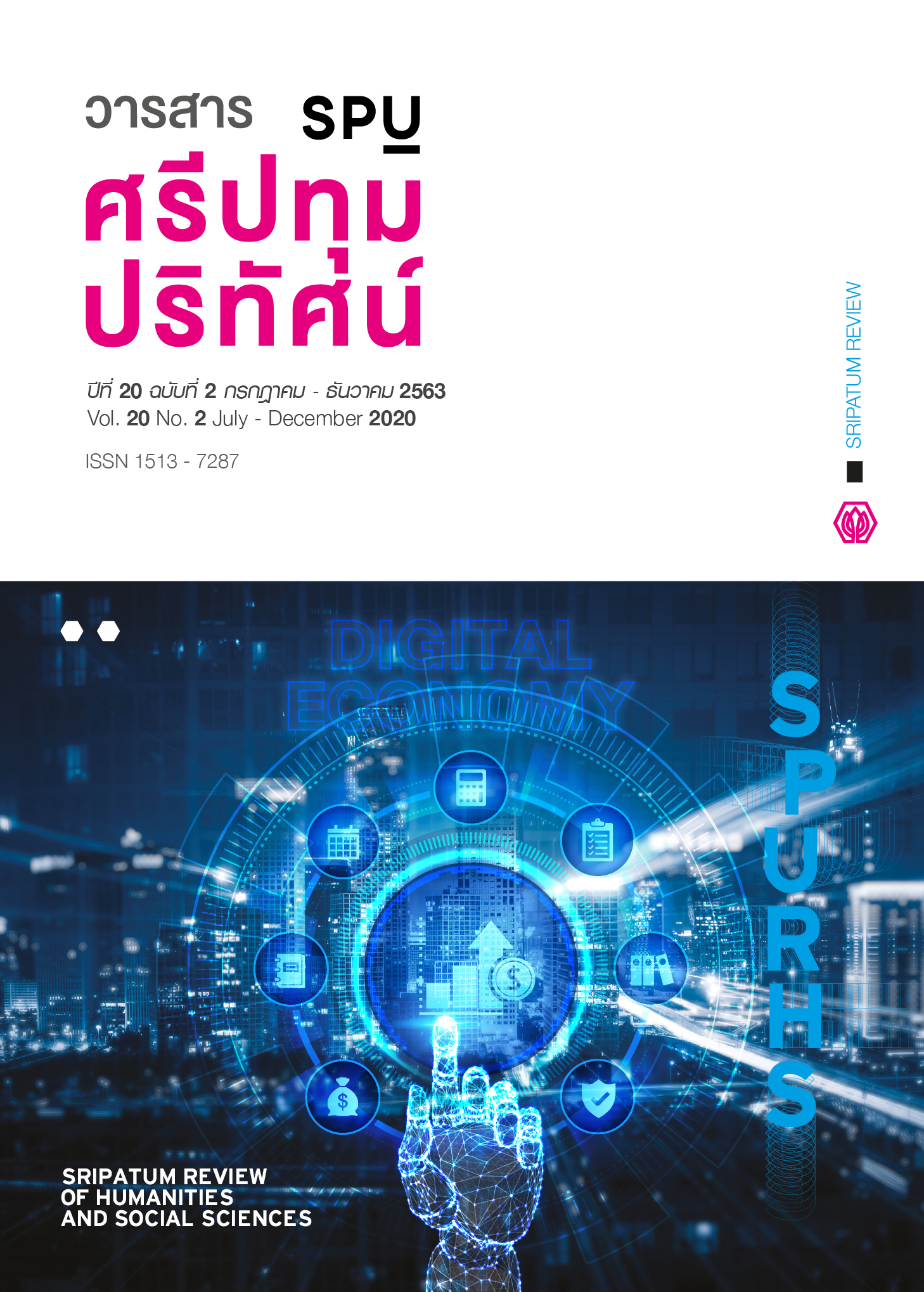Non-formal Education Management with Game-based Learning Concepts to Strengthen the Self-Esteem of Dropout Teenagers
Main Article Content
Abstract
The objectives of this research were (1) to develop non–formal education management activities using game-based learning to strengthen self–esteem of drop out teenagers, and (2) to investigate the effects of the organized non-formal education management activities using game-based learning to strengthen self-esteem of drop out teenagers. This study was conducted using pre-experimental design of one group, pretest-posttest design. The research sample consisted of 12 purposively selected teenagers, aged 15-19 years, who dropped out of the school. The research instruments included (1) a self-esteem assessment scale, (2) a behavior observation form, (3) a diary record, and (4) an admission follow-up form. Data collected from the self-esteem assessment scale were statistically analyzed using the percentage, mean, and standard deviation. Data collected from behavior observation form and diary record were analyzed using content analysis. Data collected from the admission follow-up form were analyzed using the percentage. The results of this study revealed that (1) the development of non-formal education management activities resulted in obtaining 10 learning management plans and learning games such as recreation and smart phone games; (2) after participating in the organized activities, the sample’s self-esteem mean score increased by 8.92 points; the results of studying data from the behavior observation form and diary record revealed that the sample’s self-esteem was at the very good level; and 91.74 % of the respondents applied for admission to continue their education.
Article Details
1. กองบรรณาธิการสงวนสิทธิ์ในการพิจารณาและตัดสินการตีพิมพ์บทความในวารสาร
2. บทความทุกเรื่องจะได้รับการตรวจสอบทางวิชาการโดยผู้ทรงคุณวุฒิ แต่ข้อความและเนื้อหาในบทความที่ตีพิมพ์เป็นความรับผิดชอบของผู้เขียนแต่เพียงผู้เดียว มิใช่ความคิดเห็นและความรับผิดชอบของมหาวิทยาลัยศรีปทุม
3. การคัดลอกอ้างอิงต้องดำเนินการตามการปฏิบัติในหมู่นักวิชาการโดยทั่วไป และสอดคล้องกับกฎหมายที่เกี่ยวข้อง
References
Charoenwanit, S. (2014). Game Addiction Behaviors: Impacts and Preventions. Journal of Science and Technology, 22(6), 871-879. (in Thai)
Chumwuttisak, K. and Silanoi, L. (2015). The Developing Grade 5 Student’s Analytical Thinking Skill and Attitude Towards Democratic Citizenship in The Learning Unit on “Good Citizen in A Democracy” Social Studies S15101 Course, Using Game-Based-Learning. Journal of Education Khon Kaen University, 38(4), 177-185. (in Thai)
Chutopama, M. (2010). How Important is Self-esteem and How to Build? Academic Journal Burirum Rajabhat University, 2(2), 13-16. (in Thai)
Dissorn, N. (2014). A Study of Factors and Causes Affecting Leaving Schools of Students According to Administrator’s Opinions under The Office of Chanthaburi Primary Educational Service Areas. Thesis of the Degree of Master of Education Program in Educational Administration. Chantaburi: Rambhai Barni Rajabhat University. (in Thai)
Hawcharoen, A. (2010). Relationship between Self-control and Online Game playing Behavior of Lower Secondary School Students. Thesis of the Degree of Master of Education Program in Psychology and Guidance. Chiang Mai: Chiang Mai University. (in Thai)
Iampracha, A. and Premchuen, S. (2017). A Development of the Guidance Activity Package to Enhance Student Self-esteem. Academic Journal Bangkokthonburi University, 6(1), 159-170. (in Thai)
Jantaragrant, P. (2016). A Study Self-esteem of Students in King Mongkut’s institute of Technology Ladkrabang. Journal of Industrial Education, 15(2), 102-109. (in Thai)
Kaenchampa, A. (2017). Self-esteem of Child and Youth in Juvenile Vocational Training Centre. Thesis of the Degree of Master of Social Work Program in Social Work. Bangkok: Thammasat University. (in Thai)
Knowles, M. (1980). The Modern Practice of Adult Education: From Pedagogy to Andragogy. Englewood Cliffs: Cambridge Adult Education.
Kunsiripunyo, J. (2015). Behavior of Teenagers so Addicted to Online Games that They Committed Crimes of Burglary: The Case Study of Sattathip District, Chon Buri Province. Nakhon Phanom University Journal, 5(3), 16-23. (in Thai)
Malone, T.W. (1981). What Makes Computer Games fun. BYTE, 6(12), 258-277.
Piaget, J. (1969). The Psychology of the Child. New York: Basic Books.
Rosenberg, M. (1965). Society and the Adolescent self-image. Princeton, NJ: Princeton University Press.
Rosenberg, M. (1979). Conceiving the Self. New York: Basic Books.
Tanyawong, T. (2011). The Effects of Recreational Activities Enhanching Self-esteem of HIV Infected Orphans in Gerda Home, Lopburi Province. Thesis of the Degree of Master of Science. Bangkok: Srinakharinwirot University. (in Thai)
Theerawongnukul, H. (2013). The Development of A Program to Enhance Self-esteem and Social Skills for Non-formal Education Students. Thesis of the Degree of Doctor of Education Program in Educational Administration. Bangkok: Chulalongkorn university. (in Thai)
Thorndike, E. L. (1966). Human Learning. Cambridge, Mass: M.I.T. Press.
Yayod, I. (2017). A Management Model to Develop Desirable Characteristics of Students with the Use of Boy Scout Activities. Sripatum Review of Humanities and Social Sciences, 17(2), 80-90. (in Thai)


